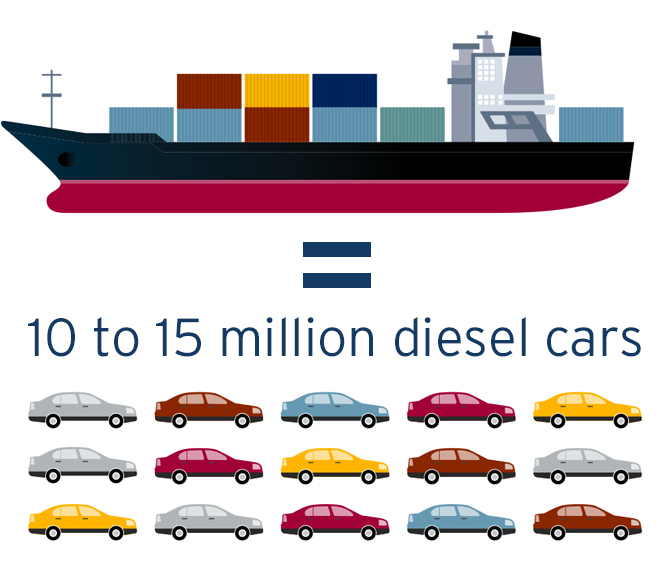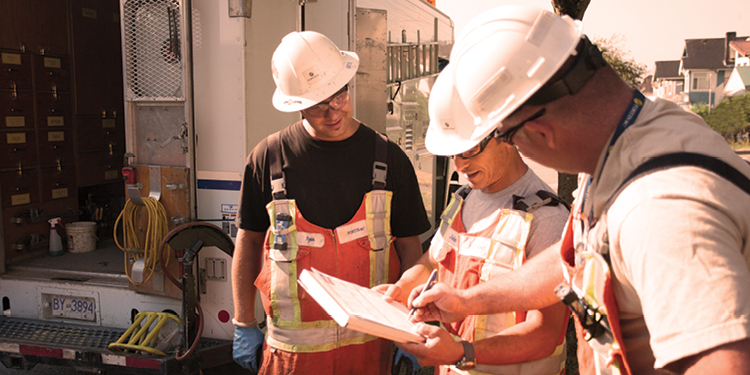We have the 'Innovation' factor
August 16, 2017
Innovation – it’s a game changer. It’s a force that allows businesses to get ahead of the curve and of course, gives them a competitive advantage.
FortisBC has been driving innovative change for a number of years, specifically in the area of natural gas for transportation (NGT). Within the last decade, we have been supporting the BC transportation sector in adopting natural gas as fuel. Fleets that adopt natural gas as a fuel lower operational costs and environmental greenhouse gas (GHG) emissions.
Did you know that emissions from the transportation sector represent more than one-third of BC’s total GHG emissions? Using LNG fuel in long-haul trucking is therefore an important step towards shrinking the environmental footprint of this industry.
“We live in an ever-changing world with evolving energy needs. As an energy provider, we anticipate and adapt to ensure our customers have innovative choices,” says Doug Stout, vice-president of market development and external relations, FortisBC.
Increasing attention is now being focused on cutting other transportation-related GHGs in others modes of transportation, namely in the marine sector.
FortisBC’s director of natural gas for transportation and regional LNG, Sarah Smith, says ships coming into BC ports currently emit 70 million tonnes of carbon dioxide equivalent per year. Using LNG for fuel would lower those emissions to 47.3 million tonnes annually, which would be equivalent to removing about 4.7 million passenger vehicles off the road.
“Natural gas is the world’s cleanest burning fossil fuel and stimulating the use of LNG in deep-sea ships provides an opportunity to lower greenhouse gas emissions on a global scale,” says Smith.
One container ship emits as much sulphur oxide (SOx) emissions as 10-15 million diesel cars.

Source: Center on Global Energy Policy, Slow Steaming to 2020: Innovation and Inertia in Marine Transport and Fuels, 2017.
LNG marine bunkering, a game changer
To enable the transition to natural gas, FortisBC also provides LNG marine fuelling, or bunkering, services to BC-based LNG-fuelled marine vessels. In fact, we are the first company in the world to offer onboard truck-to-ship LNG bunkering. This was possible through the collaborative approach we took with our marine customers, BC Ferries and Seaspan.
Both customers required an onboard bunkering system for their new LNG ferries, similar to what they already had for existing diesel bunkering. To meet this requirement, we consulted with our customers and their shipbuilders in creating a custom-made solution.
In 2014, Seaspan committed to operating two LNG-fuelled vessels with LNG provided by FortisBC. Shortly after, BC Ferries also committed to adopting LNG as a marine fuel for three vessels. These were some of the first marine vessels of their kind in Canada. These five vessels were put into operation in 2017.
“FortisBC recognizes that the market demand for LNG is poised to grow dramatically in response to stricter environmental and emissions regulations, particularly in the marine sector,” says Mike Bains, manager of regulatory and commercial development, Fortis BC. “In order to support the growth in demand, we are in the final stages of expanding our current LNG production facilities.”
For example, the Tilbury LNG expansion project which is nearing completion has provided a wide range of economic and employment benefits for the neighbouring communities during the construction phase of the project.
Being innovative not only allows us to explore emerging markets and expand our industry, it also allows customers like BC Ferries and Seaspan to meet operational goals while meeting environmental objectives. All of which translates to cleaner air in the communities where we live and work.



